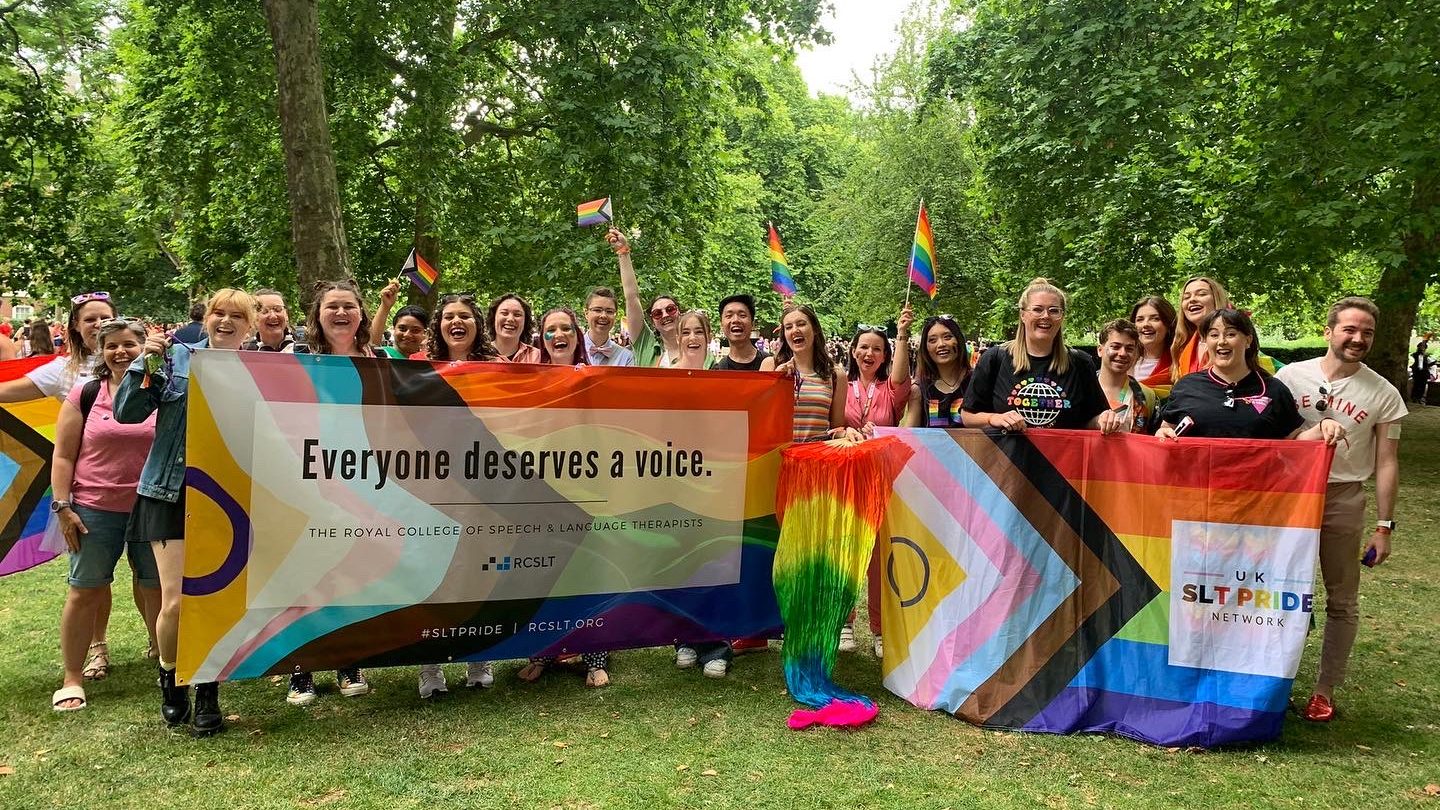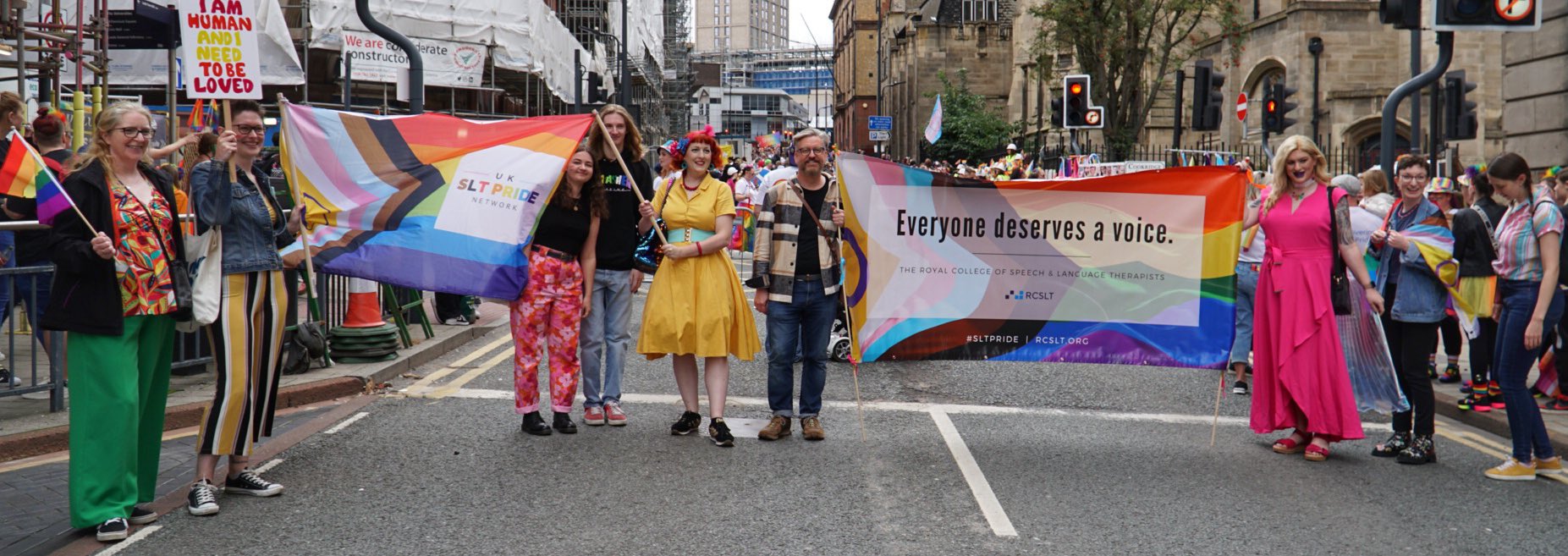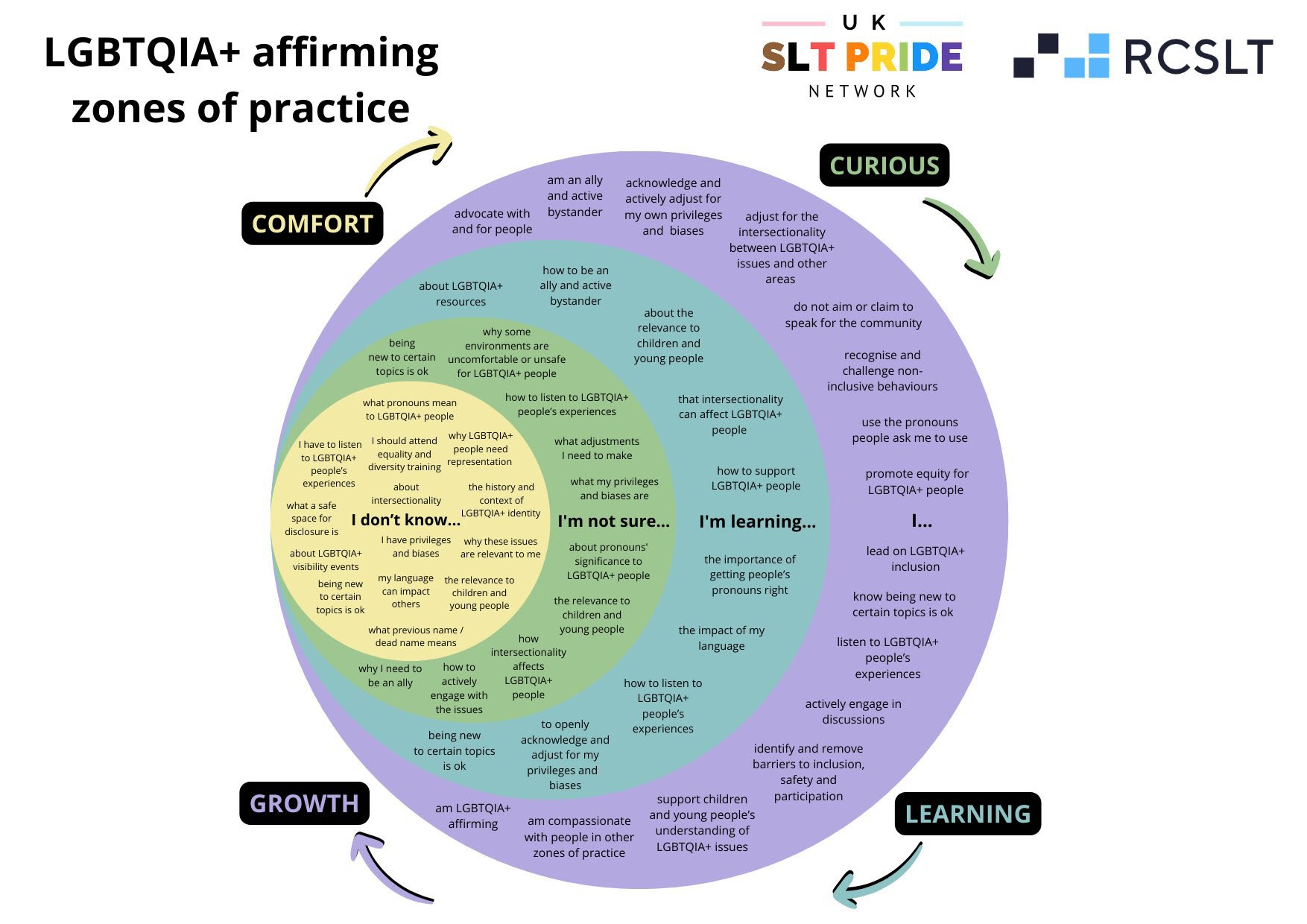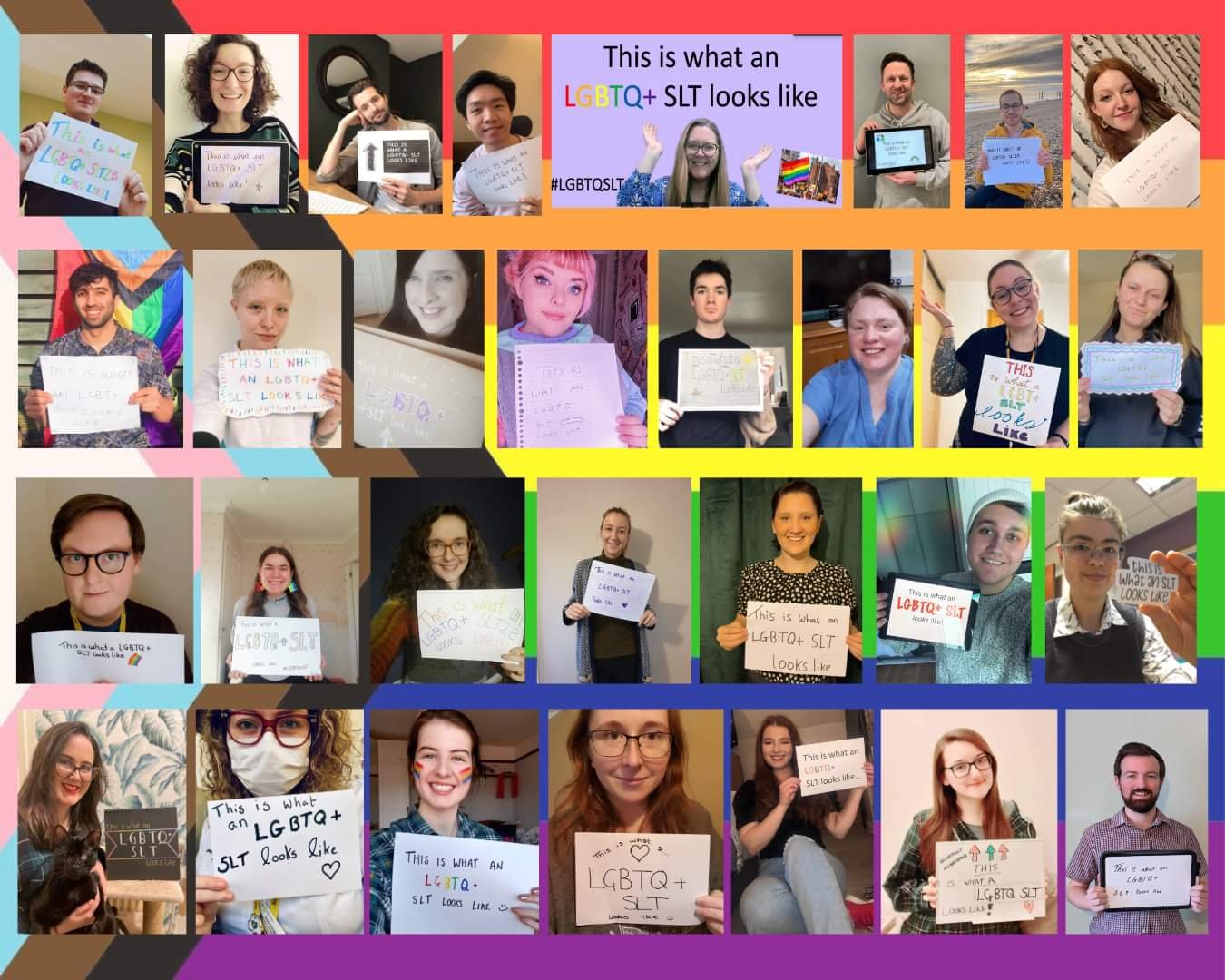To mark LGBT+ History Month, two members of the UK Speech and Language Therapist (SLT) Pride Network share their experiences
The theme for LGBT+ History Month 2024 is Medicine #UnderTheScope – an opportunity to celebrate the unique contributions of LGBT+ healthcare professionals and acknowledge the unique challenges they face.
To mark the month, we heard from members of the UK SLT Pride Network, a network that aims to support and represent LGBTQIA+ Speech and Language Therapy (SLT) professionals including registered SLTs, SLT Assistants/Technical Instructors and SLT students. You can find information about the network, including how to join, below.

Jen Chun, they/them, registered SLT
I have faced barriers in my career as an SLT due to my ethnicity, sexuality, gender identity and neurodivergence. As someone who is not cisgender, not white and not a woman, I am in the minority in my profession, and I have often felt under-represented. I almost didn't see myself succeeding because those who have succeeded didn't look like me. As a whole, I have struggled to feel that I ‘fit in’.
During my training I had many doubts about whether pursuing this career was the right choice for me. Once I qualified and started working as an SLT, I began facing microaggressions from colleagues, which I did not feel I could discuss with anyone within my team, as they just wouldn't understand. Though I joined my team as a cisgender person, I transitioned to be a non-binary person, and since then I have struggled hugely with colleagues misgendering me and with the cis- and heteronormative themes that dominate our casual conversations.
I have struggled to form connections with some of my colleagues due to these multiple differences, which is a shame, because the teams I have been in are quite social. This in turn made me feel like I didn’t belong and negatively affected how I felt about my career.
Sometimes I feel lonely because there is no one at work to talk to who will just ‘get it’. Having to explain myself every time is exhausting.
Being part of EDI networks has helped immensely - especially the UK SLT Pride Network. They are a safe space where my identities are respected. Visibility and representation are so important, and seeing queer SLTs thrive in the profession made me feel like I can do it too.
With this support I was able to change my uniform from a more ‘feminine’ tunic to a neutral polo shirt, which aligns a lot more with my gender expression, with no questions asked. I was able to request a new name badge with the correct pronouns – again, no questions asked.
Sadly I am still misgendered by colleagues on a daily basis, even with these changes. It is still hurtful and sometimes makes me feel less motivated to come to work, which is a barrier I still have not overcome.
Learning about intersectionality has helped me understand and reflect on my experience. I have been able to have better conversations with senior leaders of my department to help them understand my experience in the context of intersectionality. Having senior leaders who are allies makes me feel safer at work, knowing that there is someone to go to during difficult times.
It is absolutely essential to bring in conversations about EDI at work, especially in a profession with low diversity. But education and advocacy can be exhausting too. My advice to someone starting out now would be to be mindful of your own wellbeing when advocating for your communities: we can only help others learn when we are well and feel supported ourselves.
Find your community and reach out to them. There will always be someone who will listen, accept and support you. Diversity is beautiful!
Anonymous, registered SLT
In my profession I face a lot of barriers related to my disabilities, gender identity, and sexuality.
Before I disclosed my gender identity, going to work felt like putting on a whole pantomime act as well as a uniform. I constantly felt like I was playing a role I hadn’t auditioned for; it was (and is) exhausting, undermining and alienating.
When I got engaged, my colleagues and patients asked if I had bought my wedding dress yet, and my partner was assumed to be male.
When I changed my name, I decided to tell some of my colleagues about my gender identity at the same time. Some colleagues in the wider multi-disciplinary team who are more LGBTQIA-aware asked me what pronouns I use. I asked them to use different pronouns to refer to me and I also asked for a different style of uniform, moving from a 'female' style tunic to a 'male' one.
Some people assumed this change was due to a promotion. I think this is indicative both of the lack of gender diversity in the SLT profession – as ‘speech therapist’ is strongly associated with the female gender – and the common association between the male gender and higher pay banding/professional status, however unintentional this may be.
My advice to someone starting out now is to be as honest as you feel able to be about who you are. There are people out there who will accept you.
There are people out there who won't accept you or who are too ignorant or closed-minded to listen. You should decide what your own boundaries are with regards to challenging, educating and explaining things to them. Don’t take on work that you can’t cope with, or which should be the responsibility of management or institutions.
Having made the changes I mentioned above and having found allies at work, I now feel more seen and respected as myself. I now feel a greater sense of belonging within my team.

What is the UK SLT Pride Network?
“We started as a small group of LGBTQIA+ SLTs on Twitter who were desperately seeking a community and a safe space within the profession. One of the first campaigns was ‘This is what an LGBTQ+ SLT looks like’, which was a visual reminder that queer SLTs exist.”
The UK SLT Pride Network elected its first committee in March 2021 and since then, it has expanded its member base to over 200. It now hosts online and in-person socials and CPD, has participated in podcasts in collaboration with other SLT groups (including SLTea Time), has led various campaigns on social media to raise LGBTQIA+ awareness, and has joined the RCSLT at Pride in London (2022) and Leeds (2023).
Throughout 2023, the network collaborated with the RCSLT LGBTQIA+ working group to promote LGBTQIA+ inclusion and intersectionality within the SLT profession. This resulted in the creation of the LGBTQIA+ affirming zones of practice, inspired by Andrew Ibrahim’s anti-racism model, in late 2023. You can find more information about this on their website.
The Network has a private Discord server for members to connect and runs a regular newsletter to stay in touch. You can browse all options for joining and engaging on their Linktree.


- Published:
- 27/02/2024
- Resources
- In your words
- Audience
- Registrants
- Profession
- Speech and language therapists

